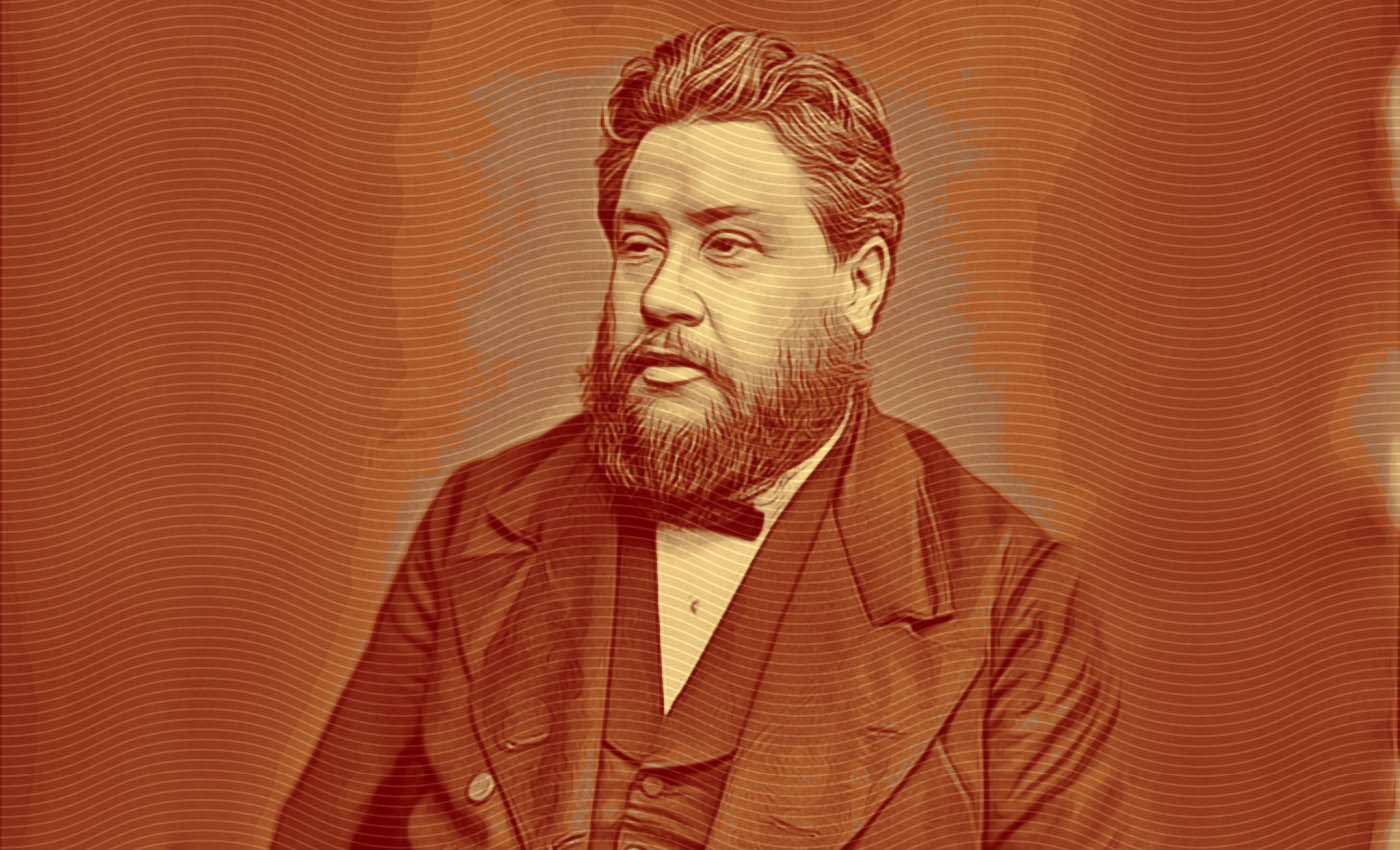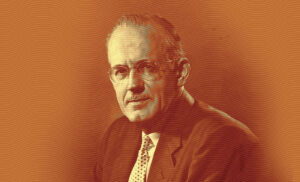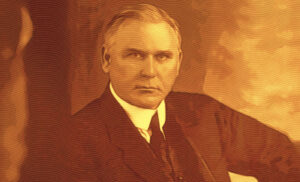I was blessed to go to a college with a bookstore that carried Christian books. On the way to class in 1993 (don’t do the math, it wasn’t yesterday!), I saw a display near the door promoting the 20th anniversary edition of J.I. Packer’s Knowing God. When time permitted for me to go back, I opened the book and started reading the first chapter. It started this way: “On January 7, 1855, the minister of New Park Street Chapel, Southwark, England, opened his morning sermon as follows.” 1855? England? I proceeded anyway into the first paragraph of who Packer quoted:
It has been said by someone that “the proper study of mankind is man.” I will not oppose the idea, but I believe it is equally true that the proper study of God’s elect is God; the proper study of a Christian is the Godhead. The highest science, the loftiest speculation, the mightiest philosophy, which can ever engage the attention of a child of God, is the name, the nature, the person, the work, the doings, and the existence of the great God whom he calls his Father.
Little did I realize that this quote (1) was of a 20-year-old named Charles Haddon Spurgeon, and (2) Spurgeon would become my long-ago pastor for the next 30+ years. Spurgeon is beloved many. Here is why Spurgeon helps me as a pastor of Christ’s church in South Denver in 2025.
Rural Man in a Metropolitan Setting
I grew up on a farm in Rustburg, VA for the first ten years of my life–helping me realize that, while I was not destined to be a farmer, I absorbed the values of family, work ethic, and caring for neighbor. So, too, Spurgeon was born in rural Kelvedon in Essex, approximately 45 miles northwest of London. He adored his grandparents (with whom he lived with for the first few years of his life) and the area. Yet, God would bring him to one of the largest cities in the world. This would be similar to someone coming to minister in downtown Denver who grew up in Byers or Limon–small, rural farming communities virtually cut off from civilization. W.Y. Fullerton, one of Spurgeon’s earliest biographers, refers to the region in which Spurgeon was rearer this way: “With its great hemisphere of sky, Essex, like Nazareth of olden days, lies near the stream of the world’s traffic, but is shut off from it.”
His first pastorate was in the little town of Waterbeach, which started as a house church but grew to over 400. God blessed and used Spurgeon to bear much fruit for the Kingdom.
Yet, the rural component helped him greatly. He comes to London, the world’s largest city, to pastor the world’s largest church with a grand history, with 700 preached sermons already under his belt and a desire to bring the gospel to bear on that struggling church. He used illustrations grounded in his rural upbringing to help bring a clarity in his sermons that soon bore fruit in attendance and conversions–different from the high-flown intellectual oratory in other churches that sounded impressive but did not connect with the listeners.
A Young Man in a Historic Church
The apostle Paul wrote to Timothy, “Do not let anyone look down on you because you are young” (1 Timothy 4:12). Yet, this is exactly what many did when a 19-year-old country boy from the Fenlands became the pastor of the historic New Park Street Chapel. This church had a storied history but the last few years left that church with only a couple of dozen of attendees. What could a 19-year-old provide this church? And a “hick from the sticks” at that?
My first part-time ministry position was at 20-years-old in older generation church. I was 31 years old when I entered my first full-time pastorate of a Kentucky church founded in 1785 (seven years before Kentucky entered the Union). They had a storied history filled with ups and downs. One ended up leaving because “she couldn’t be preached to by a child.” So reading about Spurgeon’s pastorate at such a young age yet still remaining faithful to the gospel was of great encouragement to me.
A Struggling Man
He also had his struggles. The depression that ensued from the tragedy at the Surrey Gardens in 1856 that, thanks to some young men pulling a prank on those in the back balcony, caused seven deaths and almost 50 injuries, stayed with him for the rest of his life. We all have those times in our ministry that can fill us with “what-ifs.” And the consequences can certainly leave their mark. Spurgeon took some needed time off and, in the meantime, sought His Savior for some perspective and relief–of which Christ provided both!
In the 1860s (in Spurgeon’s late 20s and early 30s), he began to experience more health issues that compounded the depression issues stemming from the Surrey Gardens tragedy. His rheumatic gout, his Bright’s disease (similar to lupus nephritis that attacks the kidneys), his weight struggles–all played a part in his diminishing health. How did Spurgeon respond to those struggles?
And many a night do we have—nights of sorrow, nights of persecution, nights of doubt, nights of bewilderment, nights of affliction, nights of anxiety, nights of ignorance, nights of all kinds, which press upon our spirits, and terrify our souls. But blessed be God, the Christian man can say, “My God giveth me songs in the night.”
His resilience stemmed from his prayerful relationship to his Lord Jesus that strengthens me in the night (and in the daytime, for that matter).
A Multi-Directional Leader
Trevin Wax recently published a new book entitled The Multi-Directional Leader, noting that all church leaders should have three directions of ministry in mind: care for souls, care for the Scriptures they are called to teach, and for their cultural context. Spurgeon provides an excellent example of this type of multi-directional leader. How?
- He preached the Word faithfully and consistently in his 40 years of pastoral ministry.
- He cared for his flock, even to the point of interviewing each prospective member personally before they entered into the Metropolitan Tabernacle’s membership–thousands of conversations!
- He saw the needs in London and sought to alleviate the suffering around him through the building of orphanages, almshouses for widows, a book fund for poor pastors, a clothing bank, street ministries, and many, many others. The Tabernacle was a beehive of ministry and handled societal needs long before the government would step in to do so.
Spurgeon challenges me to think in more than one direction when it comes to pastoral and church ministry.
A Hard-Working Man
In the final chapter of Spurgeon’s ministry, he stood alone in his convictions during the Downgrade Controversy. While all others, even those from his own Pastors’ College defected to the new ways that
In an 1872 sermon, Spurgeon spoke on the need for a gospel-centered work ethic:
Any service for God, if it be done at all, should be hard work. If you want to be feather-bed soldiers go and enlist somewhere else, but Christ’s soldiers must fight, and they will find the battle rough and stern. We, of the church militant, are engaged in no mimic manoeuvres and grand parades; our life is real and earnest; our battle, though not with flesh and blood, is with spiritual wickedness in high places, and it involves hard blows and keen anguish. You must look for real fighting if you become a soldier of Christ, and oh, sir, if the excuse for fainting be that the work is toilsome, that it is too much a drag upon you, why did you begin it? You ought to have known this at the first. You should have counted the cost.
Though Spurgeon only lived for 57 years, his work ethic is seen through his weekly schedule that could fill four lifetimes. For Spurgeon, the old adage of, “I’d rather burn out than rust out” was true. Granted, advising someone to maintain this schedule as an example may not be recommended, but when the motive of this work is to glorify God, build up the church, and win souls for Jesus—now that is a motive I would recommend to all in service to our King.
A Faithful Man
In a day when so many well-known pastors of large churches and ministries fall from grace with a loud crash, not Spurgeon. He stayed at the Metropolitan Tabernacle for 38 years–until his health could last no longer. He also remained faithful to his dearest love, his wife Susannah. Sadly, church history is littered with men who, for the sake of their ministry, forsake their families. Not Spurgeon. Granted, he was busy and in high demand. And Susannah struggled with her own health after the birth of their twin boys, Thomas and Charles, but Spurgeon remained faithful and devoted to his dearest love.
Spurgeon knew that his priorities lie with the Triune God, then his family, followed by whatever other ministries God entrusted to him. Thankfully, God provides this example of love and faithfulness through the lives and ministries of Charles and Susannah Spurgeon.
Conclusion
More could be said, but I am grateful to God for providing a pastoral example like Charles Haddon Spurgeon to encourage me, strengthen me, and challenge me in this chapter of my ministry. So many will try to tell you how your ministry should look. Listen to them–eat up the meat and spit out the bones. Yet, finding someone who was biblically in-tune to Christ and who knew it in theory and in practice—those examples are treasures.
Spurgeon is that for me—who is it for you?
Matthew R. Perry (Ph.D., Midwestern Baptist Theological Seminary; D.Min., The Southern Baptist Theological Seminary) has pastored Arapahoe Road Baptist Church in Centennial since 2011. He is married to Cindy for 26 years and has four amazing children. He is the author of All-Around Spurgeon (Acoma Press) and is available to come to your church to share more about Spurgeon or other biblical matters.






